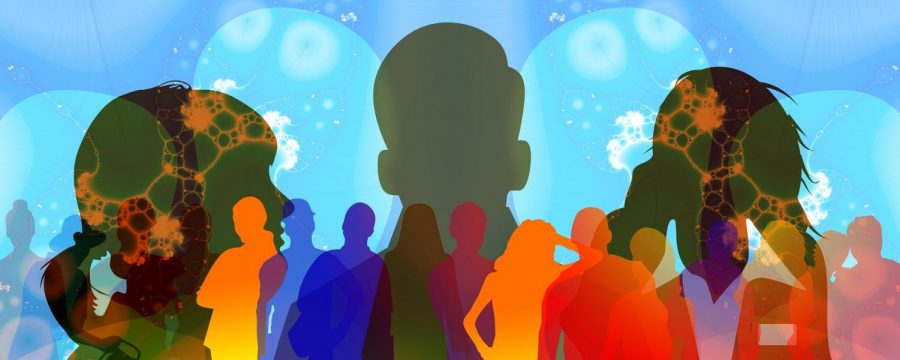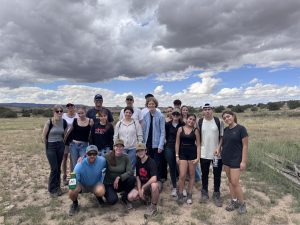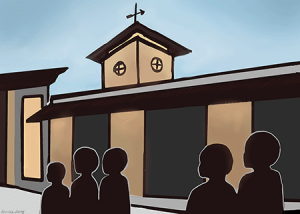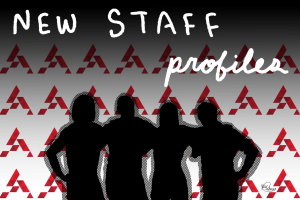Gen Z’s New Form of Social Justice
Social Media Activism: the Good, the Bad, the Ugly
September 18, 2020
At the turn of the 21st century, the most racially diverse generation of all time was born into a world plagued by climate change, mass incarceration, gun violence, and income inequality. Now, “Gen Zers” are coming of age during a pandemic and a presidency that continues to divide the nation. Many members of this generation, whether of legal voting age or not, feel the weight of these issues and are using their voices for change.
With the murder of George Floyd, caught on tape in May of 2020, came a renewed outrage over police brutality, sparking nationwide Black Lives Matter protests that continue months later. In the midst of the Coronavirus pandemic, which caused many Americans to lose their jobs and livelihoods, millions of Americans had the time and energy to take to the streets and demand police reform.

According to the Morning Consult, about 12% of Gen Z attended Black Lives Matter protests in recent months. However, many more, over 45%, have used other outlets to engage in activism without leaving the house and putting themselves at risk of getting or transmitting Covid-19. Gen Zers have gotten creative with their activism; they share educational posts, email templates to send to government officials, and more on social media with their followers. Many Gen Zers on all sides of the political spectrum start simple–they educate themselves by watching documentaries or movies or by reading books. Noah Vigil ‘21 said, “I took it upon myself to understand [the movement]. I read a lot and I like to listen to podcasts.”
Whether social media activism is effective or performative is up for debate, and members of Gen Z are split. While some believe that any activism is useful, others find social media activism to be trivial and meaningless. According to the New Yorker, social media can be a highly effective tool for protest organizers and longtime activists to spread concise information not only about logistics, but also about the reforms they are calling for. Often, when celebrities begin sharing important information, others follow their lead and soon a large movement is formed. Marwa Chohan ‘21 said “If you look at Emma Watson’s Instagram, she’s very activism focused and she’s speaking out about issues. Social media is an amazing platform to get the messages out there.”
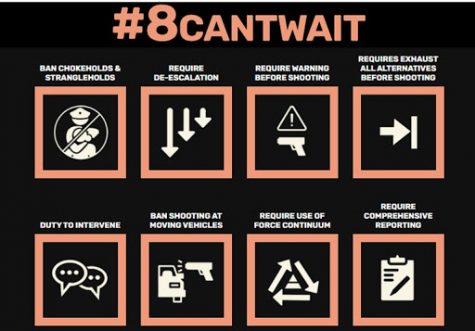
An example of celebrities’ impacts on movements can be seen in the “#8cantwait” campaign, which called for eight policy changes for police departments to make in order to prevent unnecessary police violence. A comprehensive graphic image gained enormous traction after celebrities like Ariana Grande shared the post. This widespread support led the LA police department to adopt these reforms.
On the other hand, because of how many different uses social media has, some of the important posts started by major activist organizations like Black Lives Matter can be lost in the clutter, misinterpreted, rendered unhelpful, or in some cases, transformed into memes. For example, on June 2nd, the music industry collectively decided to not release any new music and have members of the industry post black photos to raise awareness for Black Lives Matter. They called this trend #BlackoutTuesday. Quickly, #BlackoutTuesday began trending with celebrities and social media users alike, causing a wave of black photos to be posted to not only the proper hashtag, but also to the #BlackLivesMatter–this caused backlash as the hashtag was previously being used to share important information, but was now clogged. Chohan commented, “When Blackout Tuesday happened, there were a bunch of people using it for clout.”
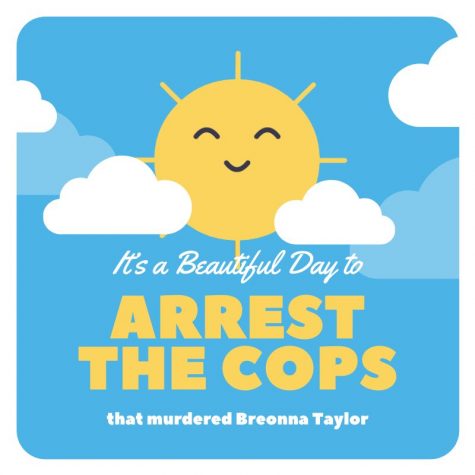
Following Breonna Taylor’s death, a slew of memes circulated that trivialized her death. One graphic design image featuring a smiling sun in a clear blue sky states, “It’s a beautiful day to arrest the cops that murdered Breonna Taylor” while a viral Tik Tok song starts cheerfully and then changes into a chant of “arrest the killers of Breonna Taylor.” These types of posts and the posts like #BlackoutTuesday, while shared with the right intent, quickly become “trendy”, and the helpful information containing numbers to call or petitions to sign are buried in the clutter. Chohan said, “I think social media activism only goes so far, and intention matters. Participating in one trend is not enough.”
While Gen Z can be as divided as the rest of the country on political views, there is often more common ground than one might think. Teens from all backgrounds, having grown up being heavily impacted by issues like gun violence, climate change, and racism, are united in believing that more needs to be done in order to make a societal impact. And, whether it truly helps or not, many are using their online presence to make their voices heard.


